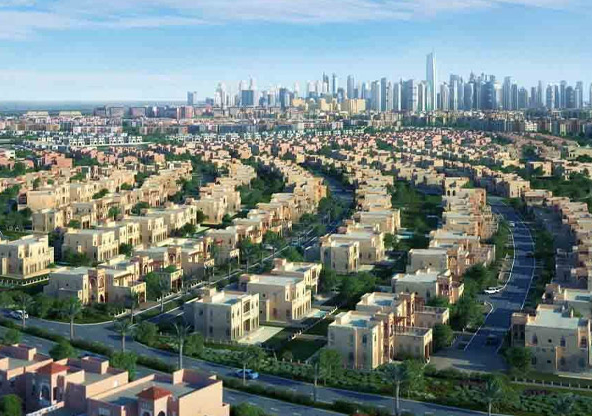Dubai, renowned for its dazzling skyline and thriving real estate market, has emerged as a prime destination for property investment, with off-plan properties capturing significant interest. This blog delves into the trends, risks, and rewards of investing in off-plan properties in Dubai. Additionally, we’ll explore how Dubai’s off-plan real estate laws and regulations enhance investor confidence and attract increased foreign investment to the Emirate.
UNDERSTANDING OFF-PLAN PROPERTY INVESTMENT
Off-plan properties are those that are purchased before construction is completed. Investors buy these properties based on architectural plans, drawings, and marketing materials. The appeal of off-plan properties lies in their potential for higher returns and lower initial costs compared to secondary properties.
Market Trends: Investing in off-plan properties in Dubai presents a promising financial opportunity, as recent market trends indicate strong growth. According to a report by the Dubai Land Department (DLD), the off-plan property sector has experienced consistent upward momentum. Notably, in previous years, off-plan property sales surged, reaching an impressive total value of AED 634 billion, with the number of transactions hitting 166,400. This significant increase underscores the growing confidence and investment potential in Dubai’s real estate market.
As Dubai remains desirable for local and international investors, with globally high rental yields and reasonable prices per square foot compared to international markets. There are some key considerations one should look over before investing in off-plan properties:
- Developer Reputation: Research the developer’s track record. Established developers with a history of successful projects are less likely to face issues that could delay or halt construction.
- Project Location: The location of the project is crucial. Areas experiencing rapid development or those in prime locations can offer better returns in the long term.
- Market Conditions: Real estate markets are subject to fluctuations. Understanding the current market trends and future projections can help mitigate risks.
- Payment Plan: Off-plan properties often come with flexible payment plans. Ensure that the plan aligns with your financial capacity and investment goals.
- Financial Stability and Performance History: Examine the developer`s financial stability and experience working on projects similar to yours. Consider their track record in the Dubai industry and the accomplishments of their past projects.
- Project Details: Obtain all the information you need about the project, including floor plans, layouts, square footage, promised amenities, completion dates, and the payment schedule. Make sure your preferences and investment goals are reflected in the project specs.
- Legal Aspects: Familiarize yourself with the legal framework governing off-plan property purchases in Dubai. This includes understanding the laws related to escrow accounts, project completion guarantees, and investor rights.
Investing in off-plan properties can be a smart financial move, it is important to know the rewards and risks associated with this type of investment:
REWARDS ASSOCIATED WITH OF OFF-PLAN PROPERTY INVESTMENT:
- More Affordable Prices: Properties which are in the pre-construction phase are generally priced lower than completed properties and come with attractive and flexible payment plans. This affordability and flexibility can be advantageous for investor seeking to enter the market at a more reasonable rate.
- Potential for Higher Capital Appreciation: Off-plan properties usually elevate in value as the project nears completion this can be due to the area around the property developing or it attracts the attention of more investors as Dubai’s real estate industry, especially, is rapidly growing. This enables investors to profit from the market value at completion from the pre-construction price.
- Attractive and Flexible Payment Options: Developers often offer flexible payment plans that can ease the financial burden of investors. This might include paying as per construction milestones or even extended payment plans like “1% per month”. These financial incentives given to buyers in the off-plan property market attracts investments and gives investors an edge in the market.
- Lower Initial Investment Costs: Off-plan properties typically require a lower initial investment compared to completed properties due to their payment structure. Although investing in off-plan properties involves some risks, Dubai’s Real Estate Regulatory Authority (RERA) and the Dubai Land Department (DLD) have implemented robust measures to protect buyers in off-plan properties, requiring payments through approved banks via escrow accounts and financial guarantees, thereby boosting investor confidence in the safety and reliability.
RISKS ASSOCIATED WITH OFF-PLAN PROPERTY INVESTMENT:
- Delayed Return on Investment: Off-plan properties are under construction at the time of purchase resulting in the inability for investors to rent them out immediately. This delay impacts cash flow and the timing of returns on investment, as investors tend to wait for the property to be completed before generating rental income or reselling.
- Project Delays or Cancellations: Construction delays or even cancellations are potential risks associated with off-plan investments. These issues can extend the time frame for completion and disrupt the anticipated return on investment. To mitigate such risks, it’s essential for investors to review the projected completion dates and current market conditions carefully. In the event of a project cancellation, investors may lose their invested capital. To safeguard against this, the Real Estate Regulatory Agency (RERA) mandates that payments be made through a registered escrow account, which restricts the developer’s access to funds until construction milestones are met.
- Lower-Than-Expected Quality: It’s crucial to note that occasionally, the final property may not meet the quality standards initially promised. This discrepancy can lead to dissatisfaction and potential financial loss. Therefore, investors should regularly monitor construction progress and maintain clear communication with developers to ensure that the property meets their expectations.
CONCLUSION
Dubai’s robust rental yields, attractive property prices, and its ongoing appeal to a global audience make it an enticing market. The city continues to draw ambitious individuals from around the world, strengthening its vibrant real estate sector. As Dubai’s market evolves, the off-plan sector will undoubtedly remain a significant player. By conducting thorough research and strategically balancing immediate benefits with long-term potential, investors can navigate Dubai’s dynamic real estate market and position themselves for greater capital appreciation.





